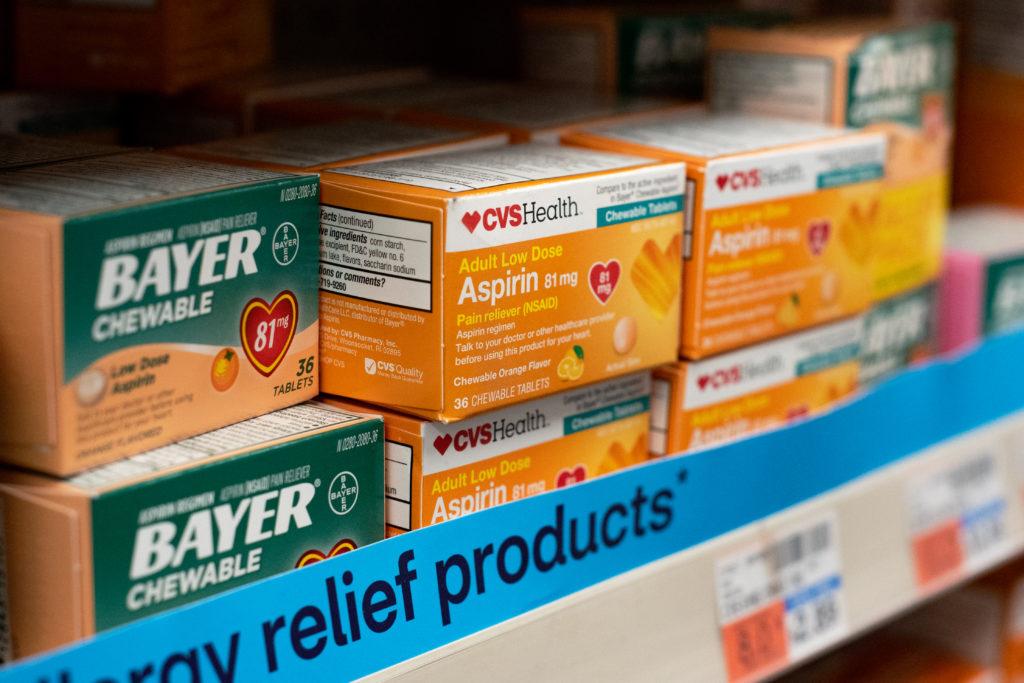School of Medicine and Health Sciences researchers found that aspirin can limit the mortality rate of patients with moderate COVID-19, according to a study published late last month.
The study found that patients with moderate COVID-19 – which involves symptoms like fever and coughing combined with shortness of breath, sometimes requiring hospitalization – had a 1.6 percent lower mortality rate if they received aspirin during their first day of treatment. Ali Rahnavard, one of the lead researchers and an assistant professor of biostatistics and bioinformatics, said the study will teach medical professionals to recognize the beneficial health outcomes of accessible drugs like aspirin in COVID-19 treatments.
“This type of study not only benefits the society and the communities with the COVID-19 pandemic but also educates us as a scientific community and the health care system to get this knowledge for the long term and learn from this,” he said.
Rahnavard said the team studied more than 110,000 patients with moderate COVID-19 hospitalizations between Jan. 1 and Sept. 10 last year through the National COVID Cohort Collaboration – a National Institute of Health database that compiles the records of nearly 8 million COVID-19 patients from more than 60 health clinics and hospitals.
He said researchers identified two groups for the study after modifying the database to create their own data set using a process called N3C filtering – observing patients through categories, like age and the infection severity level. He said one group included moderate COVID-19 patients who received aspirin in the first 24 hours of hospitalization, while the other group was made of patients who didn’t receive aspirin during the first day of treatment to compare two different statistical analyses of the data.
“We needed to do those filtering and data processing to get to the number we were very confident on and the data we were confident on to perform our analysis,” he said.
Patients younger than 18 years and patients with severe disease on the first day of hospitalization were removed from the data set, according to the study.
Katrina Hawkins, a co-investigator of the study and an assistant professor of anesthesiology and critical care medicine, said the research team ran statistical analyses of the two groups to determine if there was a significant difference in 28-day mortality between aspirin use.
She said when aspirin was used on patients over the age of 60 who had at least one comorbidity – two or more medical conditions present in a patient – they had significantly reduced mortality rates when compared to the other age groups like patients between 18 and 40 years old.
Aspirin use had no association with the mortality of patients without comorbidities, but the odds of mortality would increase if the number of a patient’s comorbidities increased, according to the study.
She said she hopes the study can reach the general public through social media and the JAMA Network Open website where users can access the paper for free.
“COVID-19 is not going away,” she said in an email. “We will likely have another wave and having anything that may help our patients survive is not something to take lightly.”
Ranojoy Chatterjee, a first-year graduate student in the health and biomedical data science doctorate program, said he helped organize the study’s data set in the programming language Python and used statistical methods, like inverse probability treatment weighting analysis – which creates similar groups of data to compare and understand different treatment effects.
He said the National COVID Cohort Collaboration database doesn’t specify which variant each patient has, so the study didn’t determine whether the aspirin left different results among patients who contracted different COVID-19 variants like Omicron and Delta.
Chatterjee said the team created the study to further explore the survival rates of patients with moderate COVID-19 because previous studies only found that aspirin treatment led to a small increase in the rate of patients with severe COVID-19 symptoms who were discharged alive within 28 days.
He said doctors currently treating moderate COVID-19 patients could use the study to justify using aspirin in treatments at their own institutions because the drug is commonly used to prevent inflammation, fever and strokes.
“In our given data set, we found that it was better off if you were given aspirin for the first 24 hours,” he said. “You would have a better chance of fighting off the disease and surviving.”
Jeffery Berger, the chair of the anesthesiology and critical care medicine department, said he supported the study’s development, edited the written results for the paper and guided the team throughout their research on patients with moderate COVID-19.
He said conducting research to identify new treatment methods for COVID-19 is essential because there could be more waves of COVID-19 in the future.
“Until we have eradicated COVID-19, it is important that we continue to investigate therapeutic modalities that can have an impact on morbidity and mortality aggressively, and therefore I think it has the chance to save lives because the current rate of death is still fairly significant worldwide,” he said.








